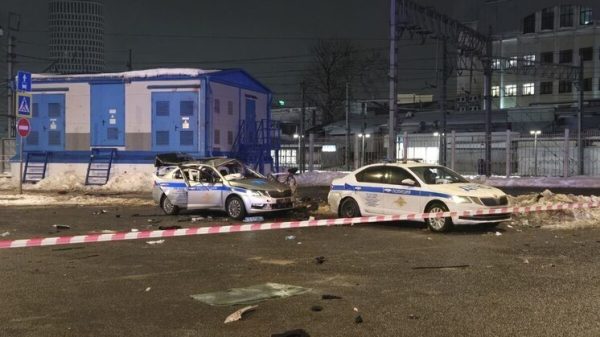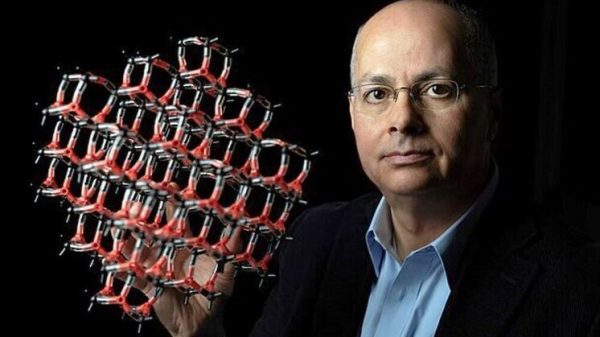 From regularly dry taps to daily four-hour power cuts, life has taken a turn for the worse for many Johannesburg residents. Photo: JEROME DELAY/AP
From regularly dry taps to daily four-hour power cuts, life has taken a turn for the worse for many Johannesburg residents. Photo: JEROME DELAY/AP
Johannesburg doesn't look its best from the outside.
The roads are littered with potholes. Broken traffic lights have not been repaired for months. Rotting garbage on the streets.
But from within, the scale of the problems facing South Africa's largest city and the continent's richest and most industrialized city are even worse.
Life for many Joburg residents has deteriorated dramatically, from taps that regularly run dry to daily four-hour power cuts (which locally called load shedding.
The decline of the southern suburb of Forest Hills is a prime example of this.
It used to be dominated by poorer white people, but has become more mixed in recent decades as black people sought to leave apartheid-era townships.
“Although they were never rich, at least things used to work [here],” Stuart Marais, a long-time resident and local city councilor, told The Telegraph.
“Traffic lights are regularly vandalized and not repaired in less than six to eight months. There is grass growing on our roads that has not been repaired for decades,” said the 63-year-old man.
 The problems facing most of Johannesburg's nearly six million residents show how badly the ANC is failing. Photo: JAMES OATWAY/REUTERS
The problems facing most of Johannesburg's nearly six million residents show how badly the ANC is failing. Photo: JAMES OATWAY/REUTERS
“There are broken down cars everywhere, and many residents throw rubbish into the streets and it rots.”
It was “too dangerous” to walk around at night, he said. «The decline in this part of Johannesburg is enormous.»
Mr Marais says the blame lies squarely with the municipality, where the African National Congress has a majority of seats.
He said support for his party, the Democratic Alliance — the main opposition to the ANC — was «definitely growing in Johannesburg» since the last national elections in 2019, which he attributed, at least in part, to the city's dire state.
In coupled with anger over long-standing corruption, poverty and unemployment, such grievances against the ANC will have a seismic impact on the country's political landscape when the country goes to the polls again on May 29.
Polls show the party will lose its majority for the first time since the late Nelson Mandela brought it to power in 1994 after the collapse of apartheid.
If that happens, it will be a significant moment for South Africa.
While the ANC will easily remain the largest in parliament, it will be a hugely symbolic shift that speaks to the level of disappointment in the party. it was supposed to help South Africa's black majority escape poverty.
The woes facing the majority of Johannesburg's nearly six million residents show how badly the party is failing.
The city is the engine of South Africa's economy, with luxury shopping, world-class sports arenas, an international airport and first-class hospitals. In 2000, it was called «Africa's world-class city.»
Yet the legacy of apartheid is still here.
The legacy of apartheid
Much work has been done to improve Soweto, the largest black township in South Africa, but the largely black areas in the east of Johannesburg are still largely ignored.
Outside the townships, there has been an explosion in the number of informal shelters in the center » old» Johannesburg, where illegal immigrants live in crowded, dirty conditions, without running water or official electricity.
Some parts of the city become no-go zones and fatal accidents become common. Last year, a fire broke out in a squatted building, killing at least 77 people.
Even in typical middle-class neighborhoods, public spaces are dilapidated, sidewalks are crumbling, and trees grow in some storm drains. grows out of them.
“We are concerned that residents' anger and frustration will give way to violent protests if something is not done now,” said Nishan Balton, chairman of the Johannesburg Crisis Alliance.
The alliance was created last year to try to help solve some of the problems facing the city.
It is made up of local residents, including infrastructure experts and business owners, who say the situation is so desperate that they would offer their services for free.
“Last year we wrote to President Cyril Ramaphosa and told him that residents, workers and businesses were faced with potholes in the streets, leaking water pipes, overflowing sewers, faulty traffic lights and lawlessness,” he said.
“We also told him that daily power outages mean businesses are idled for hours, disrupting daily life and forcing residents to rely on ingenuity to cope with the chaos. It continues today, nothing has changed.» But Mr Balton said Africa's richest city had been hit by a «massive» disinvestment that had worsened unemployment and made the streets unsafe.
 Johannesburg's infrastructure is falling apart. Photo: LEON SADIKI/BLOOMBERG
Johannesburg's infrastructure is falling apart. Photo: LEON SADIKI/BLOOMBERG
«The dysfunction in the city is rooted in unstable political coalitions within municipalities and neglect of maintenance.»
Mr Ramaphosa has not yet responded to the organization's letter, he said, «but we let's go ahead and make some changes, at least in some areas of the city.»
The scale of the problems facing Johannesburg has recently been highlighted by water shortages affecting both rich and poor areas of the city.
Every day, at least a quarter of Johannesburg's water is lost due to leaks, according to reports.< /p>
The sprawling city has more than 7,000 miles of underground water pipes, some over 70 years old, and most in need of replacement. The annual pipe replacement plan is only a third complete.
Taking into account water theft and the monthly free allowance of 6,000 liters per household, only about half of the city's water supply is actually paid for.
Ferrial Adam, a prominent environmental activist, said this means there is a severe shortage of funds to maintain infrastructure.
“More than half the budget goes to contractors, and another third to staff. , and only minor maintenance, some of it poorly managed.
«We haven't done enough maintenance for the last 10 years and now so much is falling apart.»






















































Свежие комментарии